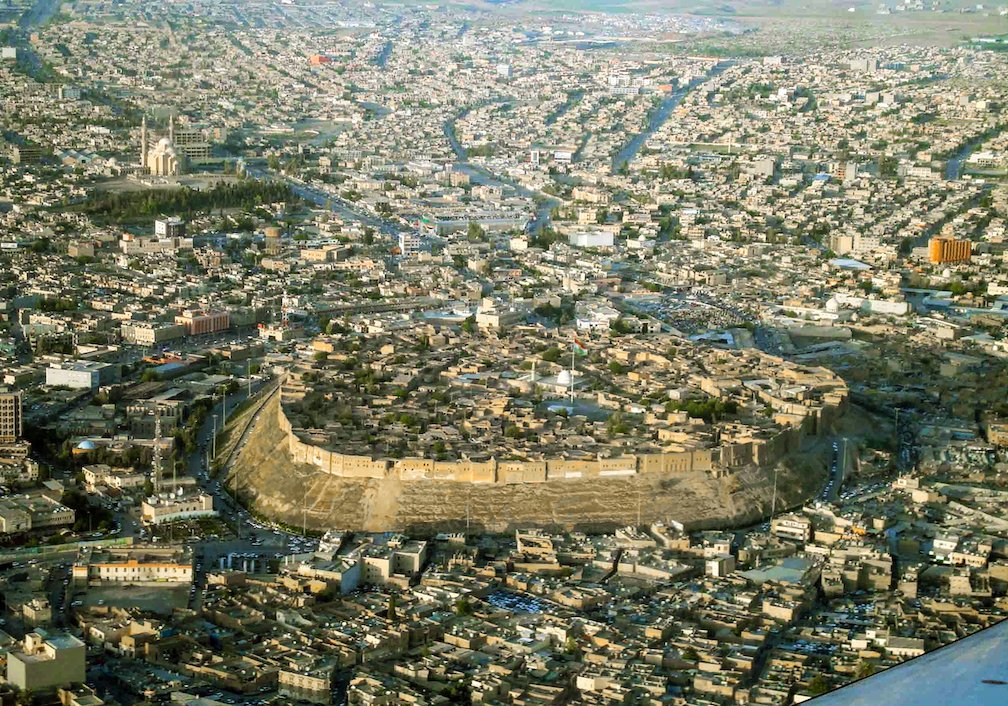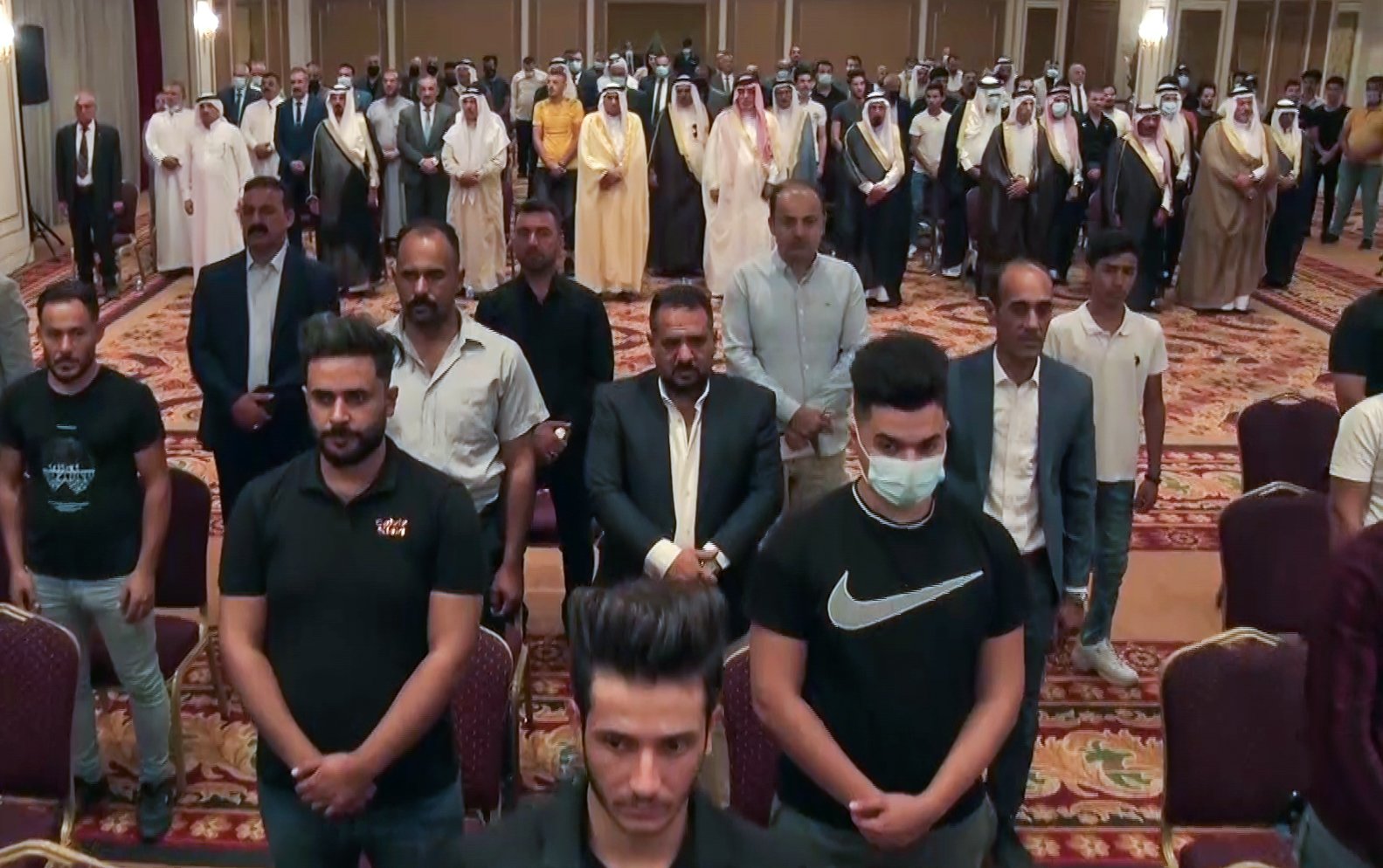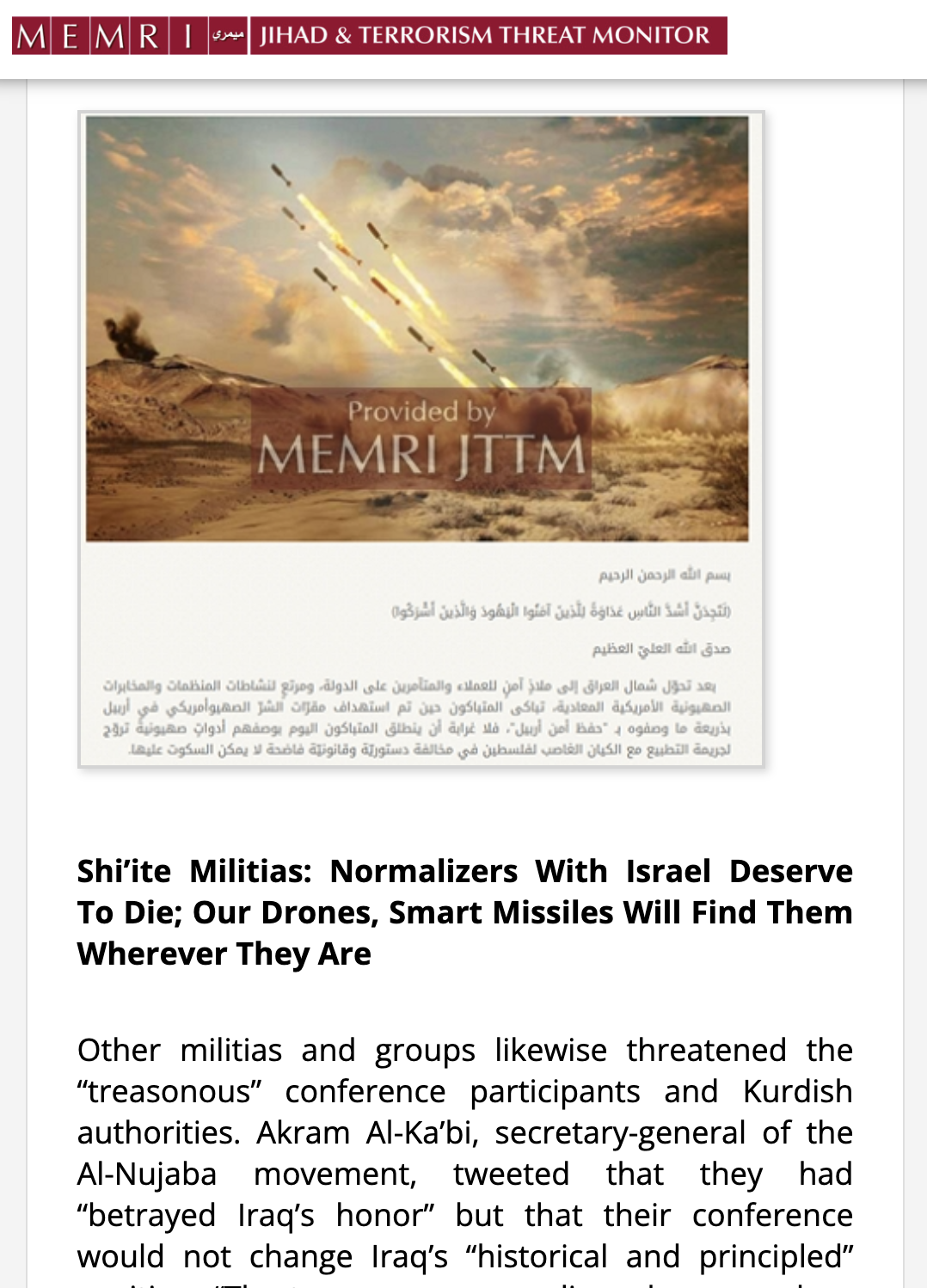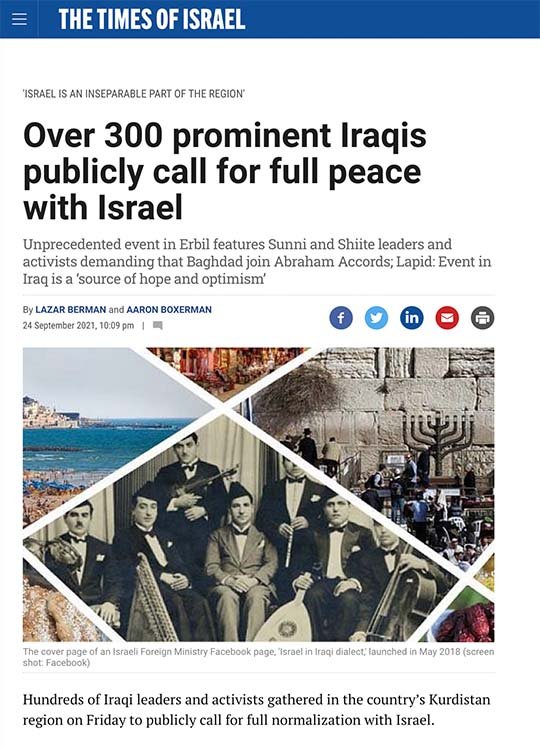
The Erbil Conference
On September 24, 2021, 312 Iraqis, Shi’ite and Sunni alike, drove overland from the country’s south and center to the northern Iraqi city of Erbil. There, in a public event convened by the Center for Peace Communications which captured headlines around the world, they openly defied Iranian militias to call for peace and partnership with Israel and its people, a new social contract for all Iraqis, and a national development strategy to rebuild the country.
Peace Between Peoples
Among the speakers, Major General Amir al-Jubouri stressed that a peace between peoples and national reconciliation within Iraq go hand in hand, and both are essential to civil society and democratic development. Sheikh Wisam al-Hardan, leader of the Iraqi Sahwa, said that his fellow citizens must choose between the widening sphere of brotherhood and progress represented by the Abraham Accords on the one hand and the zone of civil war and state failure under Iranian and jihadist domination on the other. Dr. Sahar Karim al-Ta’i, a Director of Research at the Iraqi Ministry of Culture, argued that Iraqi-Israeli peace will serve Palestinian and Israeli interests alike as well as reconnect Iraqis with their ancient Jewish diaspora. A concluding statement announced the formation of working groups to translate words into action.
Robert Satloff, Executive Director of the Washington Institute for Near East Policy, dubbed the conference “the most significant citizen-inspired, people-to-people act of peacemaking in [Middle East] history.”
"We refuse to be silent any longer" — Dr. Sahr al-Ta'i Calls for Iraqi-Israeli Peace
Sheikh Wisam al-Hardan Calls for Direct Relations with Israel
Maj.-Gen. Amer al-Juburi: Israel an Inseparable Part of the Middle East
CPC President Joseph Braude Speaks at the Conference of Peace and Reclamation

Violent Response
Hours after word of the conference spread, IRGC-backed militias launched a campaign of violent intimidation, threatening death to participants and rockets on Erbil. Hezbollah chief Hassan Nasrallah called for “waging battle … lest more such events happen in the future.” The Baghdad government, for its part, issued arrest warrants on the conference organizers.
The participants, who had anticipated a backlash, organized to protect themselves. Some recanted under threats of death to themselves and their families. The Center for Peace Communications meanwhile moved with its supporters to relocate Iraqis facing arrest warrants or other danger to safety outside the country.
Coverage Around the World
The event was covered in tens of thousands of news stories — in all 21 Arab countries and all G20 member states, from the U.S. and Canada to China and Japan, as well as Israel, Turkey, and Iran.





